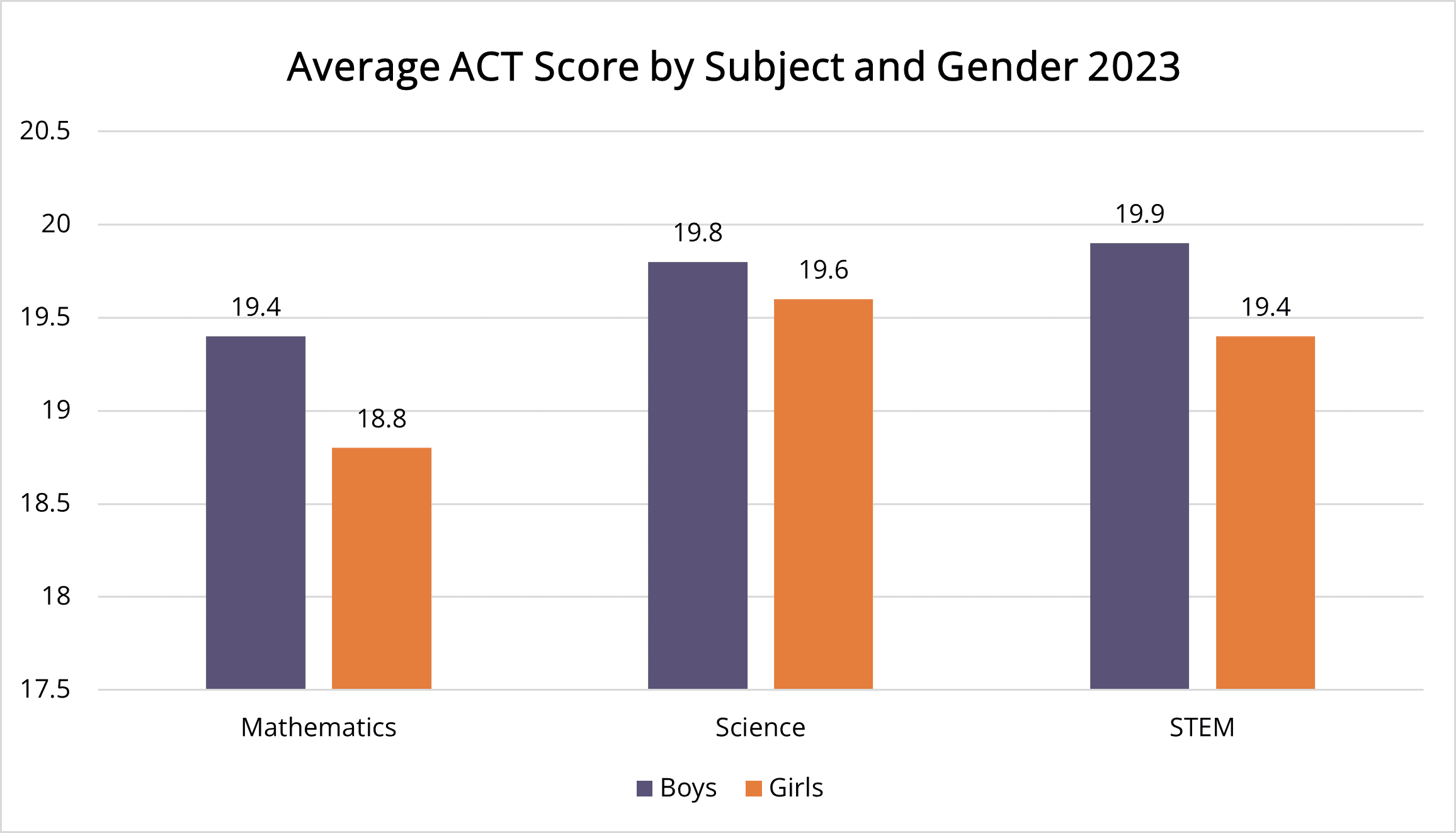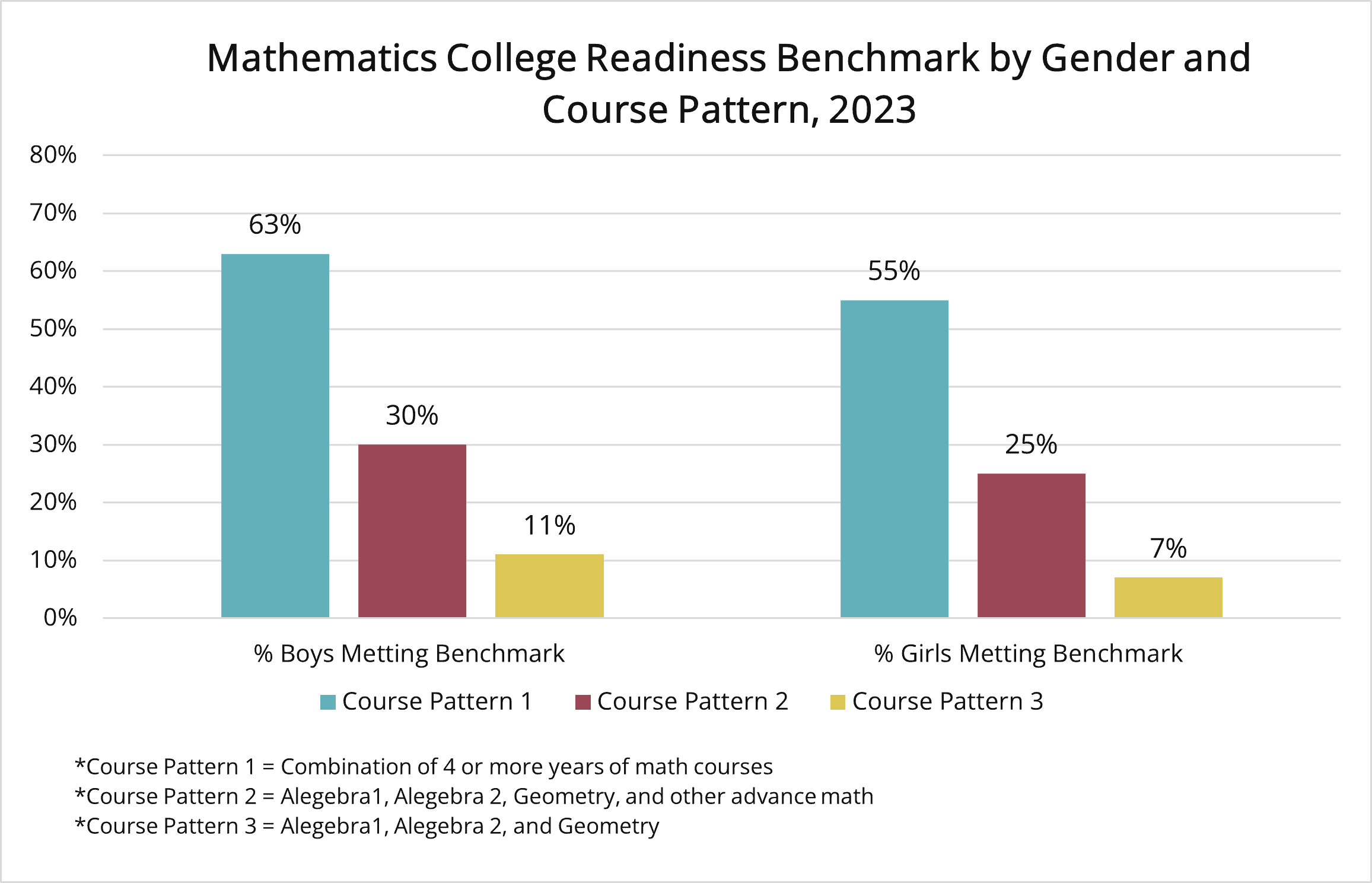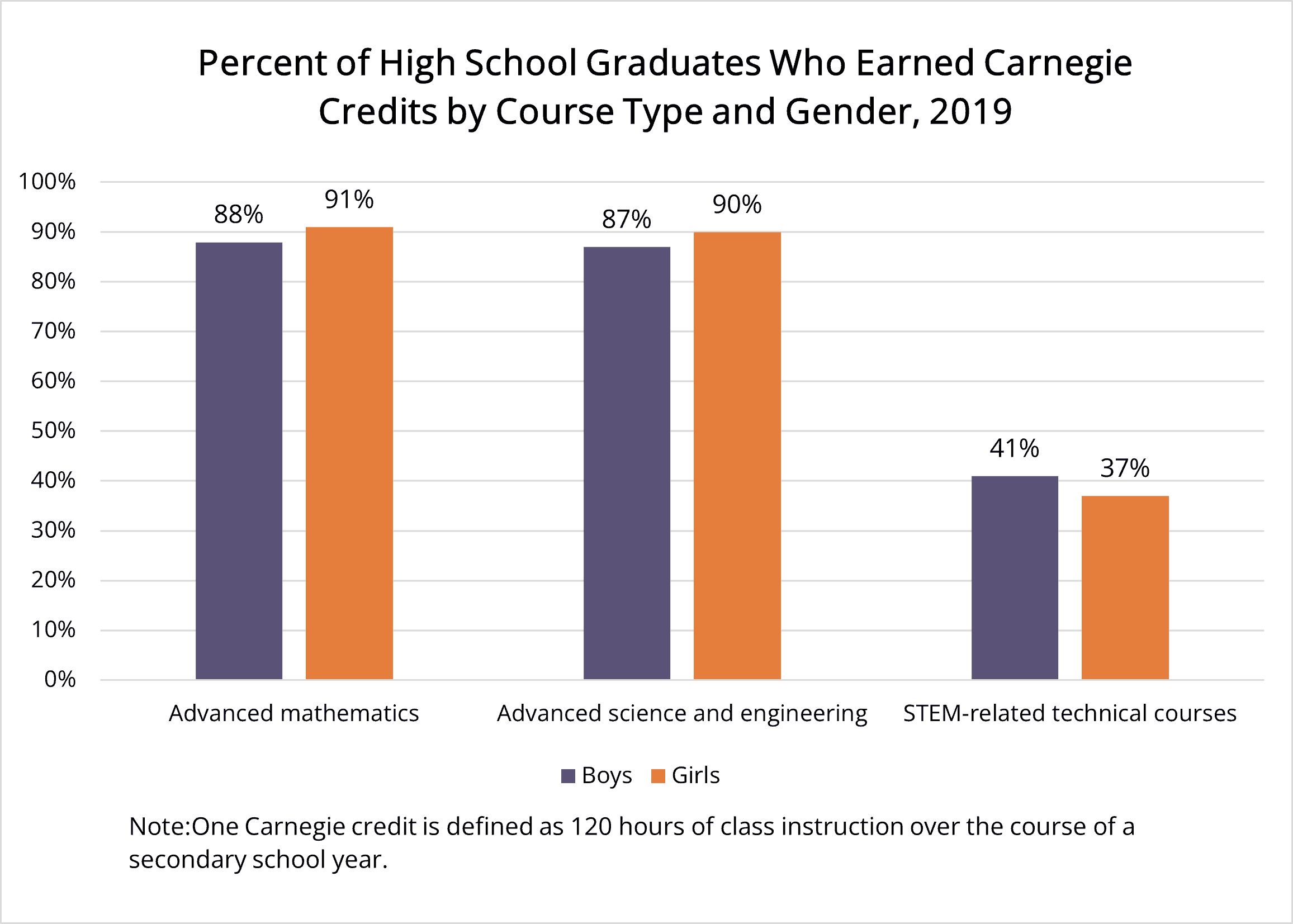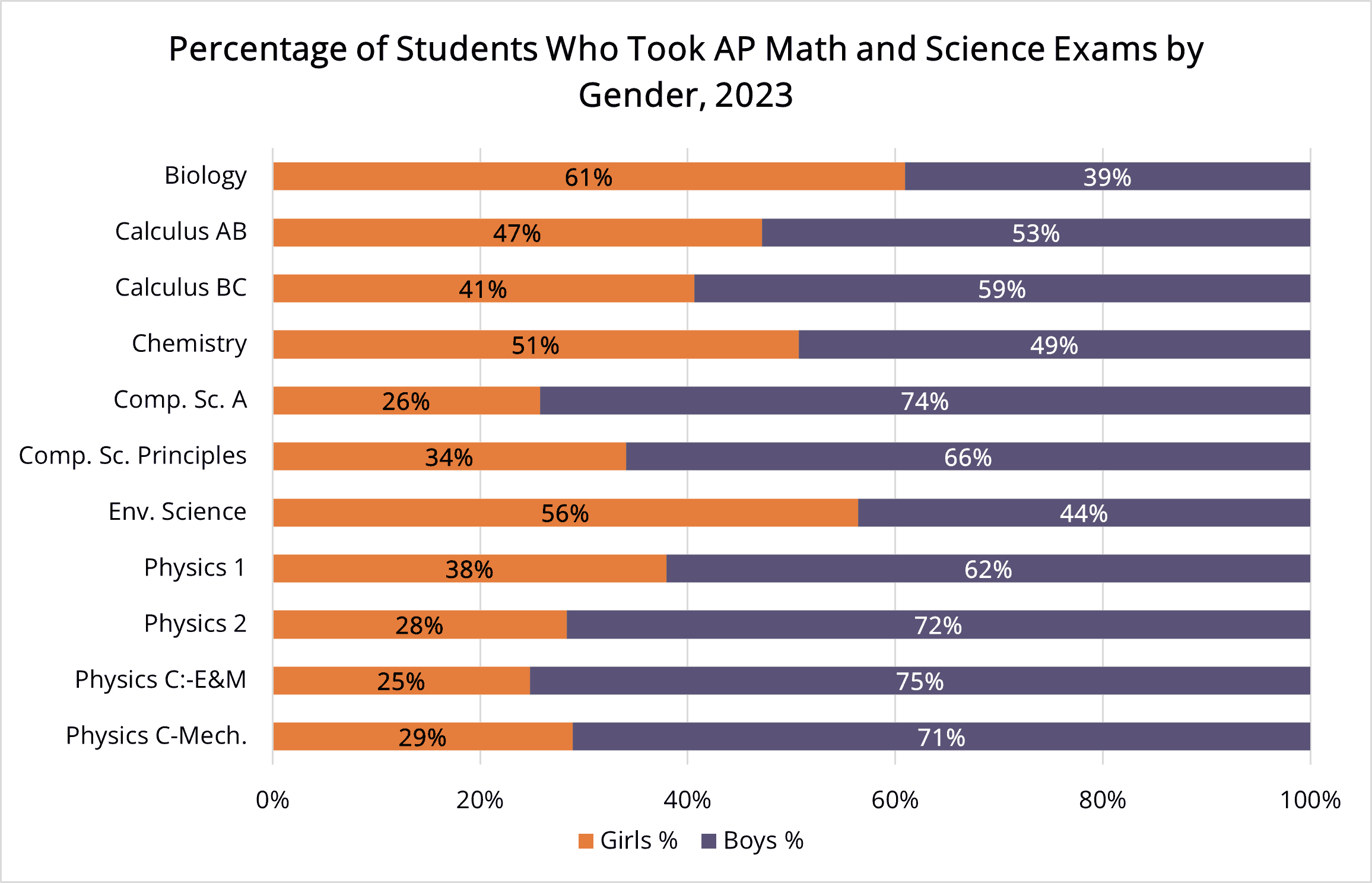The ACT college readiness standards evaluate high school students’ English, mathematics, reading, and science proficiency. The readiness benchmarks are the minimum ACT scores that can determine if students have a chance to succeed in their first year of college and a specific set of first-year college courses (Allen & Radunzel, 2017). When considering readiness for engineering college degrees, mathematics scores are essential. A benchmark score of 22 or more in mathematics correlates with success in college algebra. According to the ACT, In 2023, 28% of girls and 33% of boys met the minimum mathematics college readiness benchmark. Science and other STEM courses can also be important in preparing for engineering degrees.

In addition, the curriculum taken by students also impacts ACT scores and college readiness. For instance, 55% of girls who take math for four years or more met the college readiness benchmark compared to 11% who only took algebra 1, algebra 2, and geometry. Unfortunately, regardless of the curriculum, disparity persists between genders; fewer girls than boys meet the mathematics college readiness benchmarks.

Advanced Mathematics and Science Credits
According to the National Science Board, in 2019, a higher percentage of girls earned advanced mathematics and advanced science and engineering Carnegie credits compared to their male counterparts. Impressively, 91% of girls earned advanced mathematics credits, surpassing the 88% of boys who achieved the same milestone. Similarly, 90 % of girls obtained advanced science and engineering credits, compared to 87 % of boys. However, challenges persist, particularly in STEM-related technical courses. While 41% of boys earned credits in these courses, only 37% of girls did, pointing to the need for continued efforts to promote gender equity in technical STEM disciplines. Advanced mathematics encompasses courses in algebra II, trigonometry, precalculus and analysis, probability and statistics, and calculus. Meanwhile, the advanced science and engineering category includes courses in advanced environmental and earth science, advanced biology, chemistry, physics, and engineering. The STEM-related technical courses cover a range of subjects, including engineering and science technologies, health science and technology, and computer science.

Advanced Placement Exams in STEM
Additionally, adolescent girls still represent a lower proportion of students taking Advanced Placement (AP) exams in STEM-related subjects, including advanced calculus (Calculus BC), physics, and computer science. Students taking AP exams are typically interested in obtaining college credit for those courses or better preparing themselves for college. Lower rates of AP exams in math and science among girls may indicate a lack of interest in pursuing a STEM degree in college. The AP reports can also be used by policymakers, school officials, and advocates to access high school student preparation and career readiness coursework.

Additional Resources
- ACT Profile Report – National. Graduating Class 2023.
- College Board. AP Summary Report 2023.
- National Science Board, National Science Foundation. 2023. Elementary and Secondary STEM Education. Science and Engineering Indicators 2024.